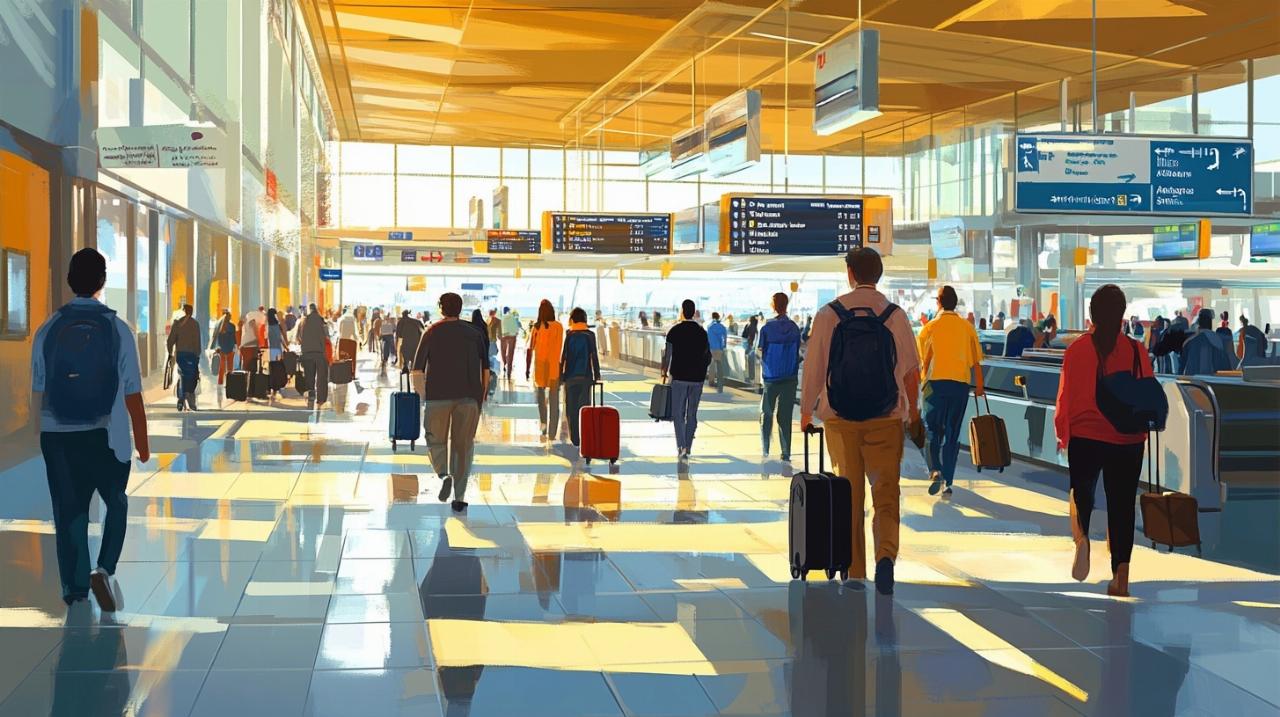Embarking on a journey, whether for business or pleasure, requires more than just booking tickets and packing bags. It demands careful preparation to ensure your travels remain enjoyable and worry-free. With increasing globalization, travelling has become more accessible but also presents unique challenges that require vigilance and smart planning.
Planning your journey properly
Before setting off on your adventure, it’s essential to lay the groundwork for a smooth experience. Taking time to research and plan can prevent numerous headaches later on. The team at www.4travelinfo.com emphasises that proper planning is the cornerstone of trouble-free travel, offering resources that make this process more straightforward for travellers of all experience levels.
Researching your destination thoroughly
Understanding your destination goes beyond knowing the major tourist attractions. It involves familiarising yourself with local customs, laws, and potential safety concerns. Research the cultural norms regarding dress codes, gestures, and etiquette to avoid unintentionally causing offence. Check travel advisories issued by your government and understand the location of your embassy or consulate in case of emergencies. Learning a few basic phrases in the local language can also go a long way in building rapport with locals and navigating unfamiliar territories.
Creating a flexible itinerary
While having a plan is crucial, allowing for flexibility can enhance your travel experience. Create a balanced itinerary that includes must-see attractions while leaving room for spontaneous exploration. Consider factors such as local holidays, weather patterns, and seasonal events that might impact your plans. Share your itinerary with a trusted friend or family member who can assist if problems arise, but avoid posting your exact travel plans on social media, which could make you vulnerable to theft or scams.
Securing your personal belongings
One of the most common travel concerns involves the safety of personal items. Tourists often become targets for theft simply because they appear unfamiliar with their surroundings and potentially carrying valuable items. Implementing strategic approaches to safeguard your belongings can significantly reduce these risks.
Smart packing strategies for valuables
Begin with thoughtful packing by creating a comprehensive list of essentials. Distribute your valuables across different locations rather than keeping them all in one place. For instance, keep some cash in your wallet, some in a money belt, and perhaps some in your luggage. This approach ensures that losing one item does not mean losing everything. When travelling with electronic devices, store important documents and information in cloud storage for access even if your devices are lost or stolen. Consider using packing cubes not just for organisation but also to make it less obvious where valuables might be stored.
Using anti-theft travel accessories
The market offers numerous products designed specifically to deter thieves. Consider investing in slash-proof bags that prevent cut-and-run theft attempts. Money belts and neck wallets provide discreet storage for cash, cards, and passports, keeping them secure against your body where pickpockets cannot easily reach. TSA-approved luggage locks add another layer of security, particularly for checked baggage. For additional peace of mind, portable safes can secure smaller valuables in hotel rooms, and luggage trackers help locate bags if they go missing during transit.
Staying alert in crowded spaces
Tourist hotspots and transportation hubs often attract opportunistic criminals looking to take advantage of distracted travellers. Maintaining awareness in these environments is crucial for preventing theft and other security issues.
Recognising potential risks in busy areas
Popular tourist destinations like the Eiffel Tower in Paris or Miami Beach present unique security challenges. Be particularly vigilant in these areas, as they are known hunting grounds for pickpockets and scam artists. Watch for common distractions such as someone spilling something on you, starting an argument, or asking for directions while an accomplice targets your belongings. Be wary of overly friendly strangers offering unsolicited help or free items, which often serve as preludes to scams.
Maintaining personal space in packed locations
In crowded situations, position bags and valuable items where you can see and feel them. Wear backpacks on your front in extremely crowded areas or opt for cross-body bags that are harder to snatch. When using public transport, remain in carriages with other passengers rather than empty ones, particularly at night. If you feel uncomfortable with someone invading your space, move away confidently. Trust your instincts if a situation feels wrong, and never hesitate to remove yourself from potentially dangerous circumstances.
Managing travel documentation efficiently
Travel documents represent more than just permission to enter a country. They are essential proof of identity and often difficult to replace if lost abroad. Establishing a system for managing these vital papers can prevent significant disruptions to your travel plans.
Organising digital and physical copies
Before departure, scan or photograph all important documents including passports, visas, insurance policies, and booking confirmations. Store these digital copies both in cloud storage and offline on a secure device. Additionally, keep physical photocopies separate from the originals. These backups can expedite replacement processes if originals are lost or stolen. Remember to protect digital copies with strong passwords and consider encrypting particularly sensitive information.
Quick-access storage solutions for important papers
Invest in a dedicated travel document organiser with RFID-blocking technology to prevent electronic theft of passport and credit card information. Keep documents you need frequently, such as boarding passes or hotel reservations, in easily accessible but secure locations. Store less frequently needed documents, like insurance policies, deeper in your luggage or in hotel safes. Develop a consistent system for returning documents to their designated storage spots after use to minimise the risk of accidentally leaving them behind.
Protecting your holiday with insurance
Even with meticulous planning, unforeseen circumstances can arise. Travel insurance provides a financial safety net that can prevent minor inconveniences from becoming major catastrophes.
Selecting the Right Coverage for Your Trip Type
Travel insurance policies vary widely in terms of coverage and cost. Consider the nature of your trip when selecting insurance. Adventure activities often require special coverage beyond standard policies. Business travellers might need protection for expensive equipment and work-related cancellations. Examine policies carefully for coverage limits on electronics, jewellery, and other high-value items. Pay particular attention to medical coverage, especially when travelling to countries with expensive healthcare systems or remote locations where emergency evacuation might be necessary.
Making claims smoothly when things go wrong
If you need to make an insurance claim, documentation becomes crucial. Take photographs of valuable items before travel as proof of ownership and condition. Keep all receipts for emergency purchases or medical treatments. Report incidents to local authorities promptly and obtain official reports when relevant. Contact your insurance provider as soon as possible after an incident, as many policies have strict timeframes for filing claims. Following these steps ensures that your claim process progresses as smoothly as possible, allowing you to focus on continuing your journey with minimal disruption.

